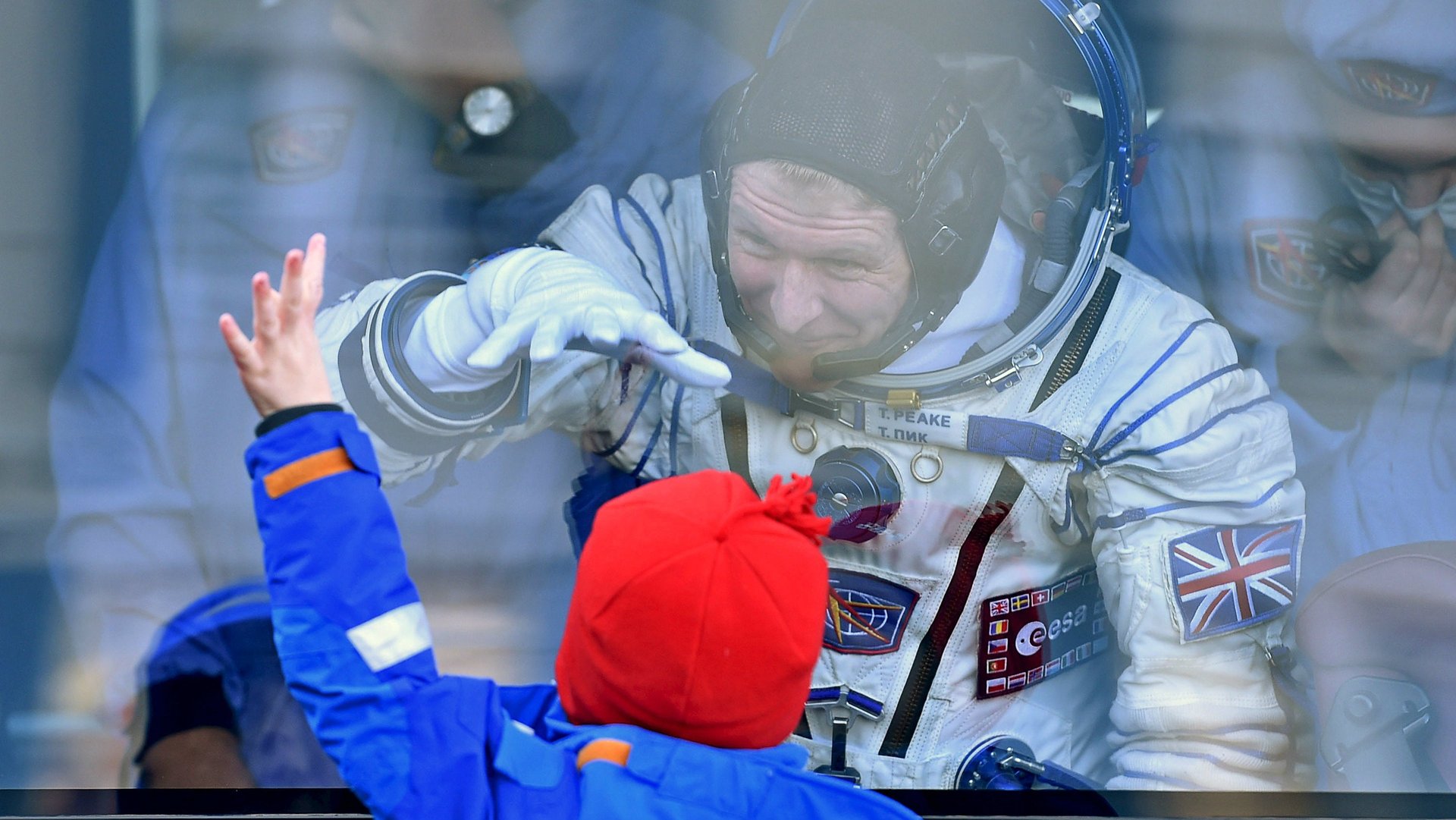A practical guide to help your kid become an astronaut
This question originally appeared on Quora: My 9-year-old has been saying for years (really, since age 5) that she wants to become an astronaut. How can I best guide and support her in pursuing this dream? Answer by Robert Frost, instructor and flight controller at NASA.


This question originally appeared on Quora: My 9-year-old has been saying for years (really, since age 5) that she wants to become an astronaut. How can I best guide and support her in pursuing this dream? Answer by Robert Frost, instructor and flight controller at NASA.
The most important thing is to support and feed her interest without taking control of her interest. You have to be constantly ready to offer up something, but she has to feel that she is in charge of her own future. So, your job is to find resources and opportunities for her.
To inspire and motivate her
The least expensive options
There’s a lot of great information available for free on the internet. Visit the NASA Kids Club website to find puzzles, games, and other activities for kids of varying ages. NASA’s The Space Place is also a good site to find information, activities, games, puzzles, and quizzes. NASA has designed its website so that it can easily be filtered for kids based on grade level. Here are the links:
- Kids in kindergarten through 4th grade.
- Kids in 5th through 8th grade.
- Kids in 9th through 12th grade.
NASA has a page where you can find biographies of each of the astronauts. If she wants to be an astronaut, learning about the real people can be very inspiring, and a great way for you to help her see that although it involves a lot of hard work, it is certainly a feasible path for a young girl. Maybe give her a biography a week to read. She can learn about people like Sally Ride, Ellen Ochoa, Peggy Whitson, and Tracy Caldwell Dyson. For a young girl, you might find some more inspirational stuff on NASA’s Women of STEM (Science, Technology, Engineering, and Math) site.
Use Quora. You and your child can have some great conversations that will feed her interest and help her learn. Come to Quora and look up questions like “How high in the atmosphere can you go before you start to float in Zero G?” or “How many people are there in space?” to come up with ideas of things to talk about. Or, if she has a question and you don’t know the answer, come here and ask it. People like me will be happy to answer it for you so you can then go back and explain it to her. If your TV provider offers NASA TV, check it out. If they don’t, you can view it online.
The most expensive options
NASA has an initiative called the the Passport to Explore Space program. It’s a program through which kids complete a passport by visiting all 14 NASA visitor centers and Space Shuttle museum exhibits. They are scattered all over the country, from California to New York, so this could be an expensive endeavor. I know it’s not something my parents could have afforded when I was a child. Here’s a picture of the first person to complete her passport. Her name is Alyssa Carson and she was 13 when she completed it. She’s standing next to astronaut Wendy Lawrence.
To prepare her
Most of the rest of this answer is stuff you and she won’t need to worry about until she is in high school. To help your child grow into a great candidate for the astronaut program is a holistic effort. She’ll need to build both her mind and body. NASA looks for well-rounded applicants. She will need to do well in all her school subjects, and should engage in athletics too. Cross-country running is very popular among astronauts.
Astronauts come from many professional backgrounds, so she has a lot of options. The three most common: engineer, pilot, or medical doctor. But NASA has selected everyone from chemists to Navy Seals. She should choose a path that she could live with, because she will have to live with it, for a while. Being an astronaut is not a first career—it is a second career. Her priority should be to excel at that first career, because the astronaut selection panel isn’t impressed by average.
What types of selections NASA makes for each class depends on their needs at the time. Sometimes they need to backfill pilots that have left. Sometimes they need to beef up the mission specialist ranks. The safest path is probably to combine engineering and being a pilot. Apply to a university with a decent aerospace engineering department and ROTC program. Get that bachelors in engineering, go into the military, and train to be a pilot. Excel as a pilot, and in her spare time, allow the government to pay for her masters degree.
Education and career achievement are not the only things she needs to be working on, though. Do things. Scuba dive, learn to fly, teach classes, volunteer for charities, be a scout leader, travel, learn to speak Russian, engage in competitive sports. The selection panel is looking for dynamic, self-motivated individuals that can learn quickly, handle stress, take orders, and communicate well with the public.
More from Quora: